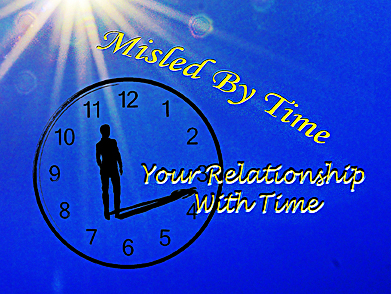When something happens at the exact time as something else, it's a simultaneous event. Einstein pointed out that two distant events happening at the same time are not simultaneous if viewed from a different frame of reference.
Let’s imagine that events in the universe are recorded on a video, and an explosion happens at the Sun. We don’t know what happened. Then, about 8 minutes later, a flash of light speeds past an instrument on the moon. Two seconds later, a computer screen on Earth shows an anomaly.
The universe has an absolute moment and simultaneity of events, but we experience each event in the universe at different moments (not time). Time is the measurement of motion, but motion is the method of communication.
Everyone eventually experiences the same event, but at their own location and moment. The reason for the delay is the speed of light. The Sun’s explosion happened in the universe at a specific moment in the age of the universe. Everyone can experience the event when the motion reaches them. Namely, we experience motion, not time.
Absolute Motion and Simultaneity
The universe has one absolute frame of reference, so events happen at the same moment, but we can’t witness the events simultaneously because of the vast distances. The Sun’s solar flare or a supernova is experienced by the universe simultaneously, but at different times, in our frame of reference.
It doesn’t make sense to talk about time or a time delay because the universe doesn't use time. Similarly, we only experience the present moment. Don't think in terms of time. Think in terms of motion. The energy of motion in the universe is constantly moving, and we experience it when it arrives.
You don’t experience the future or the past. You are living in the present moment of motion in the universe, and you can’t move forward faster or backward in this motion.
Relativity of Simultaneity
Einstein measured the time difference between events by using the speed of light. If you measure events by the distance it takes light to move, time becomes relative in the universe depending on your frame of reference. Einstein said the simultaneity of events depends on your frame of reference. Thus, in Einstein's Relativity, time is relative.
However, I'm showing that there is only one absolute age (time) of the universe. Time doesn't even exist except on a clock, and that's why I always mention the present moment. The universe has an absolute age, and events happen simultaneously, but at different moments when the motion reaches you.
Clocks and the Present Moment
We think time has the physical power to move the universe, but time is a description of motion. The motion is moving, and the numbers on a clock are moving, but "time itself" is absolute. The confusion is solved when you realize that clocks can move faster or slower because clocks tick relative to their environment. Clocks show the local time in their environment. For example, a clock in a satellite will show a different time than your clock.
Clocks measure the speed and duration of motion, and we call it time. The present moment in the universe moves at the same speed everywhere. Stop thinking that time is moving. The energy of motion is moving. The fastest motion in the universe is the speed of light.
The motion of the universe moves simultaneously, at the speed of light. The electrons in your body are also moving at the speed of light around atoms, and quarks are oscillating at the speed of light. Sunlight is moving toward us, and only this present moment exists.
The Present Moment in a Flash
A flash of light is a moment, and if it came from a gun, a bullet is in motion. By the time you can see the flash, the bullet can hit you. Meanwhile, the motion of light and electrons continue moving. The light from the gunshot is reaching the moon as you feel the bullet.
We experience slow motion, but the motion of light and energy is moving at the speed of light. Don’t confuse time with motion. Time doesn’t move the universe. A force of motion moves the universe into the future, and nothing can move faster than the universe.
We are experiencing life in slow motion. We live in the motion of the universe at each present moment, and use clocks ticking at one second per second to keep track of our daily events.
Time is a Concept of Motion
Time is derived from the constant motion of the Earth, and we describe everything in terms of time. Scientists use clocks to measure the speed or duration of events within this motion, and time is how we define and explain events in our lives.
The only way we can easily understand events is to label them with time using clocks and calendars. Things move by a force of energy, but it’s easier to describe motion with a clock. We need clocks and calendars to keep track of daily events. Time is a great way to label events, but we mistakenly believe that time makes things happen. The reality is that time describes events, but energy and motion are the cause of them.
Thank you for reading my newsletter, where we discuss the science in your life and the evolution of consciousness. My goal is to help us understand life better by answering the question, "Is this all there is?" Take care of yourself, and let's meet again. Namaste.

